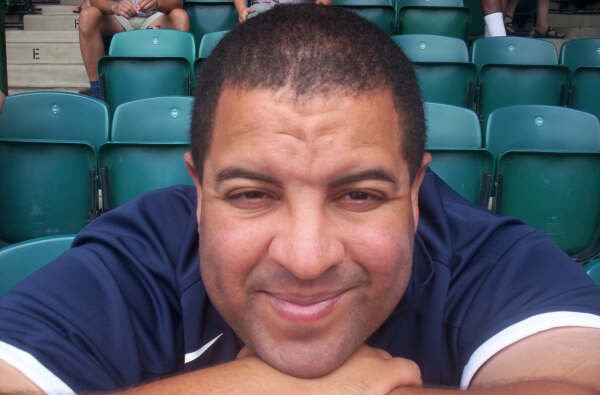Mental Health Campaigner and Founder of CLASP, Kenny Johnston, speaks out about the impact of imposed financial pressure by banks and continues to call for greater support for those experiencing mental ill health
Kenny Johnston told Happiful how he has been fighting an ongoing financial battle that has severely affected his mental wellbeing and placed him at risk of attempting suicide, again. He is now calling for banks to assist people in crisis and vulnerable situations - sooner - to prevent further self harm and suicide.
Kenny’s own experiences began when he fell into arrears on his mortgage in 2010 after being diagnosed with a mental health condition causing anxiety, depression and physical illness including severe headaches. What followed for him was eight years of ‘harassment’ from a well-known high street bank, which he says drove him to two suicide attempts over six years. To this day, Kenny says that the bank have not offered any means of alleviating the pressure which continues to negatively impact his life, leaving him at further risk of suicide, and making it impossible for him to leave the address where he has experienced his darkest times.
Kenny said: “I would not wish for one individual or family to endure my experience over the last 8 years. I have suffered more than the distress placed upon me via the bank over the years as it led to lost communication with family and friends, as well as relationships. Though if by talking about my personal experience can help the public be more informed and fewer people at risk of self-harm and suicide, I can feel at ease with the last 8 years and look forward to a more positive future once the bank free me from my ongoing mental hell."
Although Kenny continues his battle with the bank, he uses his personal experiences to positively support others, becoming a trained counsellor in Mental Health First Aid and Suicide Prevention, as well as a prolific campaigner. In 2013, he established CLASP (Counselling, Life Advice, Suicide Prevention) Charity and has been praised by the Department of Health, NHS England, Public Health England, local Authorities, plus numerous charities and services across the country for his dedication to raise mental health awareness and wellbeing, along with suicide prevention.
Kenny also founded and organises the Walking Out Of Darkness events staged across the country which enables local and regional communities to unite and end mental ill-health stigma. The first of this year’s events will take place on Saturday 12 May, in Battersea Park, London.
Eight Year Battle
In 2010, at the beginning of his troubles with a well-known high street bank, Kenny originally owed £5,462.35 but by December 2016, his debt had jumped to £37,638. He claims the bank “ignored medical certificate and Doctor’s letters plus letters from the Department of Work and Pension” and that he was bombarded by regular calls and threatened with legal action, despite the bank being made aware of medical professionals assisting his mental ill-health distress and that the Department of Work and Pensions had agreed to resolve his arrears.
Six years later and having won three complaints against the bank with the Financial Ombudsman Service, Kenny found himself again threatened and facing an eviction hearing. Over the course of a frantic 24 hours the bank was advised by the Financial Ombudsman Service to stop all legal action but instead, the bank called and threaten to evict him despite knowledge of his previous suicide attempts.
On 2 July 2016, Kenny again attempted suicide, troubled by the constant demands and pressure from the bank. In a bid to resolve the situation, he spoke with several contacts from the charity he founded (CLASP Charity) and received offers of support from numerous charities and services as well as influential people. It was the intervention of Norman Lamb, North Norfolk MP, the former minister for care and social support as well as, national mental health advocate; the bank retracted its threats of evicting him and added the outstanding debts onto his mortgage.
The Financial Ombudsman Service investigation at the time of Mr. Lamb's intervention, again found in favour of Kenny. The bank offered £400 for the 'distress and inconvenience' caused in relation to Kenny's suicide attempt, though they claimed they were merely seeking to 'move matters on' relating to the arrears on the mortgage and felt the eviction threats were a means of resolution.
Throughout Kenny's experience, he had regular conversations and charitable work with Government departments, solicitors, the Financial Ombudsman Service, Financial Conduct Authority and others organisations; Kenny discovered banks have a legal duty and responsibility to their customers with disabilities including mental ill-health and should have offered this support to him in 2010 as a matter of course via the Equality Act 2010.
Kenny said: “The bank was fully aware of my ill-health prior to my first suicide attempt, but they never wanted to discuss assisting me. There were frequent letters and calls coming from the bank on a weekly basis and I wasn’t given the time needed to seek legal or medical assistance. When you suffer from mental ill-health, you don’t take to headache tablets and carry on with your day. Given the distress and pressure placed upon me, sadly suicide looked as though it was the only solution to end the constant pressure from the bank.”
Kenny has backed renewed calls from money saving expert Martin Lewis and MPs wanting debtors with mental health issues to have “six weeks breathing space” to medical assistance and support, along with support from banks get their arrears in order without pressure or threats of eviction.
“Though the Breathing Space debt respite scheme offers assistance for individuals with mental health difficulties, the Equality Act from 2010 has been a means for banks and all services to protect people with mental ill-health difficulties from discrimination, harassment and other forms of distress. Any bank or business providing a service under the Equality Act 2010 which fails to provide a reasonable adjustment for a person with a ‘disability’ including mental ill-health is viewed as in breach of the Act. Therefore, the Breathing Space debt respite scheme can be enforced by the Equality Act and protect people with disabilities including mental ill-health accordingly.”
“I appreciate Martin Lewis, Luciana Burger, Joe Mercer, Norman Lamb and others, along with the Government are championing this cause, but banks and employers have had the means to make reasonable adjustments for people with mental ill-health since October 2010 The failing of the banks and services to adhere to the Equality Act could have played a part in incidents of self-harm and general ill health across the country. From that perspective it’s something that needs to come into prominence sooner rather than later in order to assist people in crisis and vulnerable situations, whilst reducing suicides.”
Find out more about CLASP
Join Kenny in Walking Out of Darkness
Find out more about Breathing Space



Comments